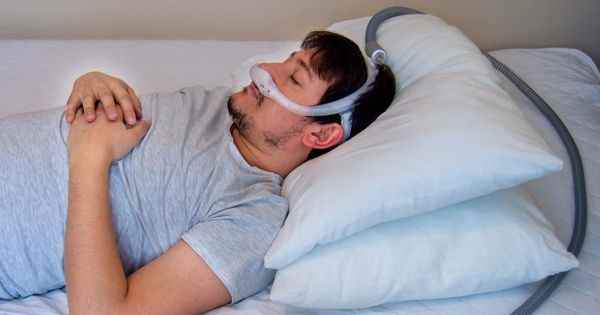Published ,
Reading 3 mins.
In the case between the manufacturer of ventilation devices Philips and the patients who are equipped with them, the electronics giant claims “transparent communication” and considers that the ANSM’s health policy decision is “unjustified”.
Following the accusations made against him, the leaders of the Dutch giant Philips take the floor and publish a press release, dated February 10. They say they want above all to “remember the facts” and “be transparent”.
The media and legal frenzy of this case will have been rapid. We were talking about it for the first time in this article: “Can Philips devices against sleep apnea be responsible for cancer?”. The company Philips was then accused by some patients of having hardly communicated on its defective ventilation devices. The company had then only published a simple press release in June 2021 and carried out a very partial exchange of the defective devices, only around 7% of the machines equipping the patients requiring this respiratory assistance.
However, the facts are potentially serious: the foam contained in the devices would deteriorate with use and synthetic particles would escape. What are the consequences on the health of users? Can machines cause cancer? At this point, no one knows.
A collective action launched
Faced with the lack of information they face, patients have opened a Facebook page dedicated to the problem. And some have taken the step of contacting a lawyer, whom we interviewed in this article “Philips ventilators: a lawyer contacted by patients launches legal action” to find out more about the collective action they wish to take. It is caught in this media turmoil that Philips in turn communicates on this affair, by means of a press release.
Philips claims “transparent communication”
First of all, Philips recalls that “providing patients with a safe device is its priority” and emphasizes its commitment to “transparent communication”.
For the company, it is “based on the first data available which was still limited at that time and as a measure of extreme precaution and for the sake of transparency” that she shared”potential carcinogenic risks associated with the use of some of its devices”.
Two reassuring studies on the risks associated with these respirators
She adds that “since then, additional toxicological tests and analyzes have been carried out, in accordance with the ISO 18562 standard, by certified test laboratories and a qualified third-party expert. As of December 2021, these tests revealed reassuring results on VOC1 emissions from 1st generation DreamStation devices. specifies the press release from the Philips company.
“Similarly, over an identical period, a completely independent Canadian study was published in the American Journal of Respiratory and Critical Care Medicine. Carried out on around 6,900 patients with OSAS who used a PAP device between 2012 and 2020, including around 1,200 users of Philips brand CPAP devices, it did not reveal a higher risk of cancer in the latter, compared to patients using a CPAP device from another manufacturer or patients with OSAS without a device”.
According to Philips, the ANSM’s health policy decision is “unjustified”
Regarding the replacement program for defective devices, the Philips company recalls that “France was the first in Europe to benefit from the replacement of devices and the third in the world”. She also highlights production difficulties due to the shortage of certain components and specifies that she “will continue to make every effort to improve these deadlines”without however specifying them.
Finally, the companyundertakes to continue to regularly communicate the progress of the replacement program “but challenges the health policy decision issued by the ANSM which it describes as “unjustified” and announces “study the possibility of appealing against this decision as soon as possible“.
